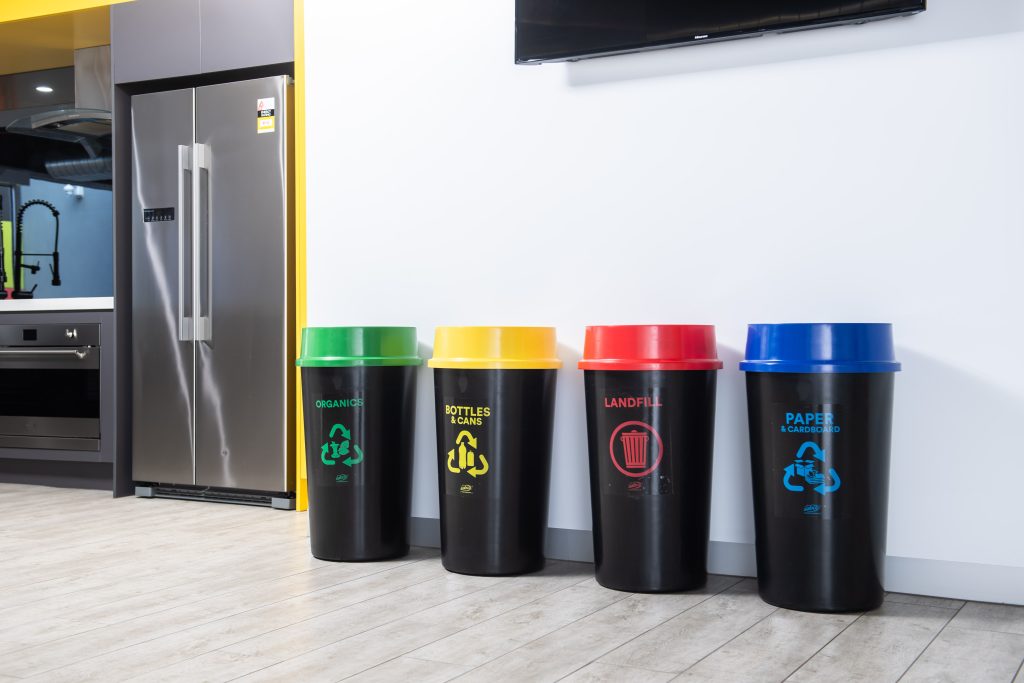The cleaning industry is constantly evolving, and one of the most exciting areas of innovation is waste management. As businesses become more environmentally conscious and focus on reducing their carbon footprint, the role of technology in waste management has grown significantly. From IoT-enabled waste bins to smart recycling systems, innovative technologies are transforming how waste is handled, making the process more efficient, sustainable, and cost-effective.
In this blog, we’ll explore how these cutting-edge waste management technologies are revolutionising cleaning services and how they can benefit businesses aiming to enhance their sustainability efforts.
The Rise of Technology in Waste Management
Waste management has traditionally been a labour-intensive and time-consuming task. However, advancements in technology are streamlining the process, allowing for more efficient waste collection, sorting, and disposal. Here are some of the key technologies that are reshaping the industry:
IoT-Enabled Smart Waste Bins
The Internet of Things (IoT) is changing the way we manage waste by introducing smart waste bins equipped with sensors that can monitor waste levels in real-time. These bins are connected to a central system, allowing cleaning companies to track when bins are full and need to be emptied.
How it works:
- Sensors in the bins detect the level of waste and send data to a cloud-based platform.
- When a bin reaches capacity, a notification is sent to the cleaning team, prompting waste collection.
- This eliminates the need for routine bin checks, reducing unnecessary trips and ensuring waste is collected efficiently.
Benefits:
- Increased Efficiency: Cleaning companies can optimise their waste collection routes, saving time and reducing fuel costs.
- Cost Savings: By collecting waste only when necessary, businesses can reduce operational costs associated with waste disposal.
- Reduced Overflow: Smart bins help prevent overflowing, ensuring that waste is always collected on time and maintaining a cleaner environment
Smart Recycling Systems
Recycling plays a crucial role in reducing waste sent to landfills, but sorting recyclables can be challenging. Smart recycling systems use advanced technology to automate the sorting process, ensuring that recyclable materials are properly separated from general waste.
How it works:
- Smart recycling systems use AI-powered sensors and cameras to detect and sort different types of materials, such as plastics, glass, and metals.
- These systems automatically sort the waste into the correct recycling bins, improving the accuracy of recycling efforts.
Benefits:
- Higher Recycling Rates: Automated sorting reduces contamination in recycling streams, ensuring more materials are recycled correctly.
- Labour Savings: With less manual sorting required, cleaning staff can focus on other important tasks.
- Environmental Impact: By improving recycling efficiency, businesses can significantly reduce their environmental footprint and contribute to a circular economy.
AI-Powered Waste Audits
Waste audits are essential for businesses looking to optimise their waste management practices, but they can be time-consuming. With the integration of AI-powered waste auditing systems, the process is now more streamlined and accurate.
How it works:
- AI-powered cameras and sensors monitor waste generation and disposal habits, collecting real-time data on the types and quantities of waste produced.
- The data is analysed to identify trends, inefficiencies, and areas where waste can be reduced or recycling can be improved.
Benefits:
- Data-Driven Insights: AI provides detailed insights into waste management practices, helping businesses identify areas for improvement and set sustainability goals.
- Customised Solutions: Based on the data collected, cleaning companies can offer tailored waste management solutions that align with the specific needs of each business.
- Continuous Improvement: With ongoing monitoring, businesses can track their progress and adjust their waste management strategies over time.
Automated Waste Collection Systems
In large commercial buildings and urban areas, traditional waste collection methods can be inefficient. Automated waste collection systems (also known as pneumatic waste collection) use underground networks of pipes to transport waste directly to a central collection point.
How it works:
- Waste is deposited into designated chutes or bins.
- A vacuum system sucks the waste through underground pipes to a central facility where it is sorted and processed.
- The waste is then transported to recycling centres or landfills.
Benefits:
- Improved Hygiene: Waste is transported directly from the building to the collection facility, minimising odours and reducing the risk of pests.
- Reduced Traffic: Automated systems eliminate the need for waste collection trucks, reducing congestion and emissions in urban areas.
- Space Efficiency: Businesses can save space by eliminating the need for large outdoor bins or dumpsters.
How These Technologies Benefit Businesses
For businesses looking to improve their waste management practices, partnering with MA Services Group that uses innovative technologies can provide a range of benefits:
Cost Efficiency
By using smart waste management systems, businesses can reduce the number of waste collections, minimise labour costs, and lower fuel expenses. Additionally, automated sorting and recycling systems help businesses avoid fines for improper waste disposal and improve overall operational efficiency.
Enhanced Sustainability
Businesses are increasingly held accountable for their environmental impact. By adopting technologies that promote recycling, reduce waste, and lower emissions, companies can significantly improve their sustainability credentials. These innovations help businesses align with green initiatives, meet regulatory requirements, and demonstrate a commitment to environmental responsibility.
Improved Compliance
Many industries are subject to strict waste disposal regulations, especially when it comes to hazardous materials. Smart technologies ensure that waste is sorted, tracked, and disposed of in compliance with local laws, reducing the risk of fines or penalties.
Increased Transparency and Accountability
With real-time data collection and AI-powered analytics, businesses can monitor their waste management practices more closely. This transparency allows companies to track their waste generation, set measurable goals, and hold themselves accountable for continuous improvement in sustainability efforts.
The Future of Waste Management
As technology continues to evolve, we can expect to see even more innovations in waste management within the cleaning industry. From robotic waste collectors to blockchain-enabled waste tracking, the future holds exciting possibilities for making waste management smarter, more sustainable, and more efficient.
At MA Services Group, we are committed to staying at the forefront of these advancements. By integrating the latest waste management technologies into our cleaning services, we help businesses optimise their waste disposal practices, reduce their environmental impact, and achieve their sustainability goals.
Conclusion
Incorporating cutting-edge technologies into waste management is transforming how businesses handle waste, making the process more efficient, cost-effective, and environmentally friendly.
If you’re ready to enhance your waste management practices with innovative technology, contact MA Services Group today to learn how we can help you achieve your sustainability goals.


